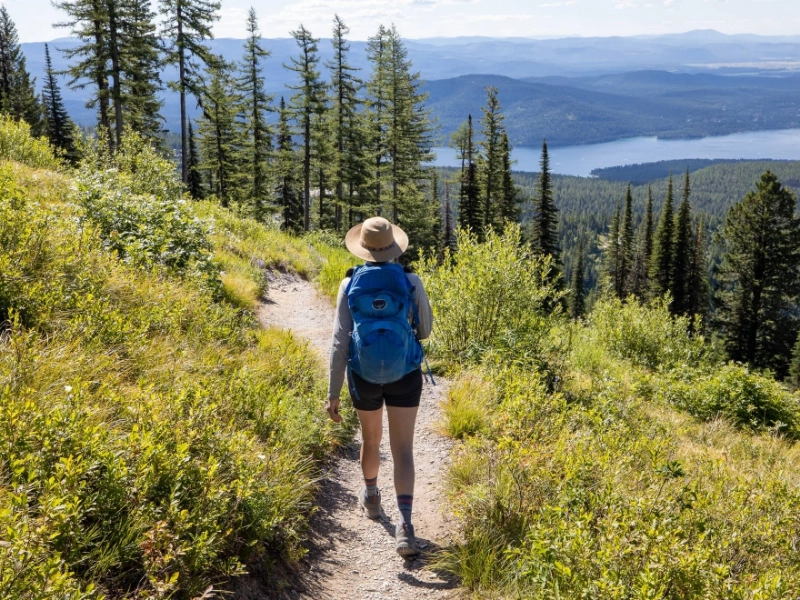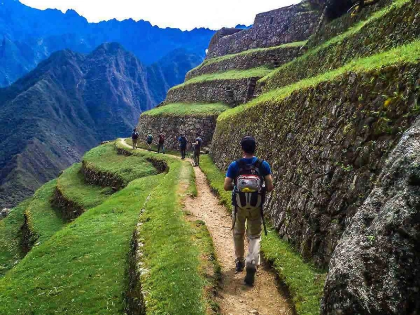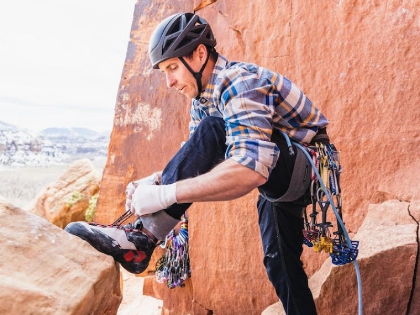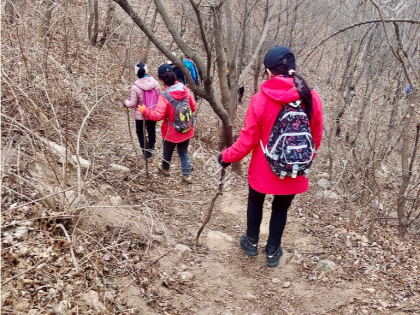How to Prevent and Combat Hiking Fatigue
Nothing compares to the sense of satisfaction one gets after finishing a strenuous walk. However, following their exploits, even the most experienced hikers can become extremely tired. Try to stay hydrated throughout your walk by drinking lots of water and thinking about packing electrolyte-rich drinks or natural fruit juices. Stretching correctly is also essential for preserving range of motion and lessening muscular soreness.
1. You lack certain nutrients.

2. You're tired.
 Nothing can quite compare to taking a lengthy walk to really appreciate nature's beauty and rejuvenate oneself. However, even the most experienced hikers may suffer from painful muscles, hunger, and exhaustion after a strenuous hike. Fortunately, there are simple strategies to avoid and overcome hiking fatigue, allowing you to continue enjoying the trails!
Overdoing it is one of the main reasons for hiking weariness. As with any activity, hiking is a full-body workout, so you should begin slowly and build up your distance over time. If you're wearing the wrong shoes for your activity, hiking can also lead to muscle soreness. Make sure your hiking shoes fit properly and support your feet.
The physical aches and pains that frequently accompany a day hike, backpacking trip, mountain climb, or trail run can be significantly reduced if you adhere to these suggestions. After your next outdoor trip, you'll feel better than ever if you adopt these easy recovery techniques!
Nothing can quite compare to taking a lengthy walk to really appreciate nature's beauty and rejuvenate oneself. However, even the most experienced hikers may suffer from painful muscles, hunger, and exhaustion after a strenuous hike. Fortunately, there are simple strategies to avoid and overcome hiking fatigue, allowing you to continue enjoying the trails!
Overdoing it is one of the main reasons for hiking weariness. As with any activity, hiking is a full-body workout, so you should begin slowly and build up your distance over time. If you're wearing the wrong shoes for your activity, hiking can also lead to muscle soreness. Make sure your hiking shoes fit properly and support your feet.
The physical aches and pains that frequently accompany a day hike, backpacking trip, mountain climb, or trail run can be significantly reduced if you adhere to these suggestions. After your next outdoor trip, you'll feel better than ever if you adopt these easy recovery techniques!
3. You're Going Too Far
 Hiking can be a very strenuous physical activity for the body, but it can also be fantastic for your feet and legs. There is a lot of movement involved in hiking, including bending at the knees, side to side, and up and down. Hiking also frequently entails scaling steep hills and navigating uneven terrain.
It could take some time for your body to adjust to the demands of hiking if you've never done it before. Increasing your trekking distance and effort gradually is the best method to avoid muscle fatigue.
After trekking, you should always remember to stretch. This aids in promoting blood flow and relaxing tense muscles, both of which help reduce chronic pain and discomfort. It's also crucial to eat healthily both before and after your walk. This will guarantee that your body has adequate fuel for energy restoration and replenishment. Consuming foods high in protein can also aid in the development and maintenance of muscular mass.
Hiking can be a very strenuous physical activity for the body, but it can also be fantastic for your feet and legs. There is a lot of movement involved in hiking, including bending at the knees, side to side, and up and down. Hiking also frequently entails scaling steep hills and navigating uneven terrain.
It could take some time for your body to adjust to the demands of hiking if you've never done it before. Increasing your trekking distance and effort gradually is the best method to avoid muscle fatigue.
After trekking, you should always remember to stretch. This aids in promoting blood flow and relaxing tense muscles, both of which help reduce chronic pain and discomfort. It's also crucial to eat healthily both before and after your walk. This will guarantee that your body has adequate fuel for energy restoration and replenishment. Consuming foods high in protein can also aid in the development and maintenance of muscular mass.
4. You're sleeping insufficiently.
 It's critical to get adequate sleep in order to avoid muscle weariness. It is an indication that you are not getting enough sleep if you find yourself yawning a lot or relying heavily on caffeine to get through the day. If you are having trouble falling asleep, consult a doctor so you can find out what might be going on and how to get better at taking care of your sleep.
Your muscles may become tired and stiff if you do not stretch adequately before and after trekking. To help soothe your aching muscles, try toe touches or calf stretches.
Hiking with a friend is another strategy to help prevent muscle fatigue throughout your journey. Accompanying a companion for a walk might help maintain your motivation and provide support in case you start to feel lightheaded or exhausted. Finally, to prevent dehydration, never forget to routinely consume water. Sports drinks and water can help replace electrolytes lost through perspiration. Additionally, keep in mind to hike in comfortable footwear.
It's critical to get adequate sleep in order to avoid muscle weariness. It is an indication that you are not getting enough sleep if you find yourself yawning a lot or relying heavily on caffeine to get through the day. If you are having trouble falling asleep, consult a doctor so you can find out what might be going on and how to get better at taking care of your sleep.
Your muscles may become tired and stiff if you do not stretch adequately before and after trekking. To help soothe your aching muscles, try toe touches or calf stretches.
Hiking with a friend is another strategy to help prevent muscle fatigue throughout your journey. Accompanying a companion for a walk might help maintain your motivation and provide support in case you start to feel lightheaded or exhausted. Finally, to prevent dehydration, never forget to routinely consume water. Sports drinks and water can help replace electrolytes lost through perspiration. Additionally, keep in mind to hike in comfortable footwear.










